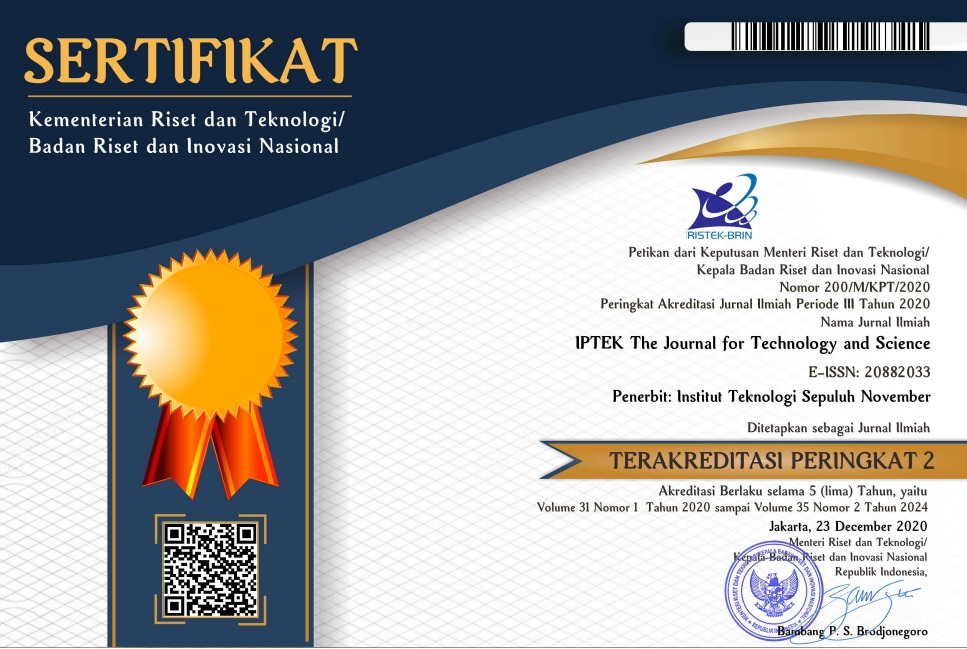Using Max-Plus Algebra in The Flow Shop Scheduling
Abstract
Keywords
Full Text:
PDFReferences
F. Baccelli, G. Cohen, G.J. olsder, and J.-P. Quadrat, 1992, Synchronization and linearity: Analgebra for Discrete Event Systems, Wiley.
B. Heidergott, G.J. olsder, and J. van der Woude, 2006, Max Plus at Work, Modelling and Analysis of Synchronized Systems: A Course on Max-Plus Algebra and Its Applications, Princeton University Press.
C. Cassandras and S. Lafortune, 1999, Introduction to Discrete Event Systems, Kluwer Academic Publisher.
Subiono, 2000, On Classes of Min-max-plus Systems and Their Application, PhD Thesis, Delft University of Technology, the Netherlands.
Subiono and J. van der Woude, 2000, Power Algorithms for (max,+)-and Bipartite (min,max,+)-Systems, Discrete Event Dynamic Systems: Theory and Applications, 10(4):369-389.
Subiono, 2000, Operator Linier dalam Aljabar Max Plus dan Terapannya, Proceeding Seminar Nasional Matematika: Peran Matematika Memasuki Milenium III, ITS, Surabaya.
DOI: http://dx.doi.org/10.12962/j20882033.v20i3.105
Refbacks
- There are currently no refbacks.
IPTEK Journal of Science and Technology by Lembaga Penelitian dan Pengabdian kepada Masyarakat, ITS is licensed under a Creative Commons Attribution-ShareAlike 4.0 International License.
Based on a work at https://iptek.its.ac.id/index.php/jts.


